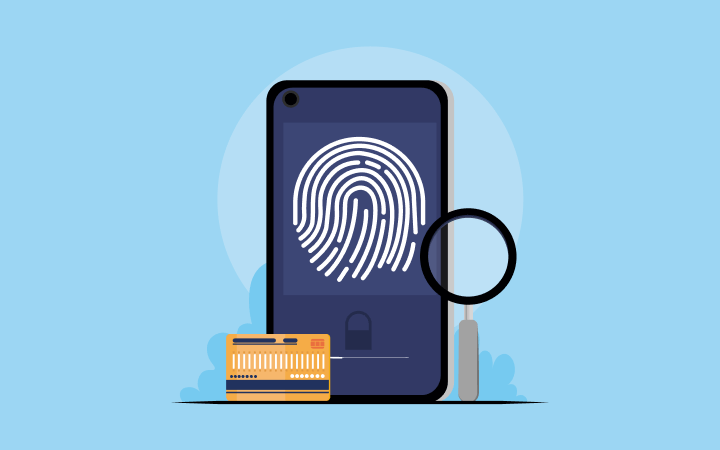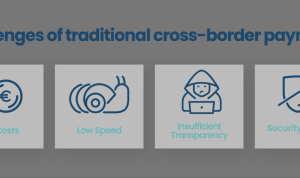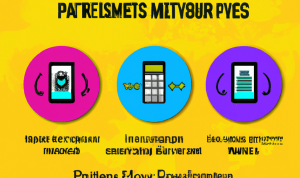Why Your Business Needs a Secure Online Payment System is a critical consideration in today’s digital marketplace. As more consumers turn to online shopping, the necessity for a robust and secure payment system becomes paramount. This not only protects sensitive customer information but also enhances trust and credibility for your business. In an era where cyber threats are rampant, ensuring the safety of online transactions can make a significant difference in retaining customers and driving sales.
With the rise of e-commerce, businesses must adapt to changing consumer expectations. A secure online payment system not only safeguards transactions but also provides a seamless user experience that can lead to increased customer satisfaction and loyalty. Let’s explore the essential reasons why investing in such systems is crucial for your business.
In today’s fast-paced world, the importance of effective communication cannot be overstated. Whether in our personal lives, professional environments, or through digital media, the way we express our thoughts and ideas plays a crucial role in shaping our relationships and outcomes. This article delves into the art of communication, examining its various forms, the barriers we often encounter, and how we can enhance our skills to connect with others more meaningfully.Communication is essentially the process of exchanging information, thoughts, or feelings between individuals.
It can take many forms, including verbal, non-verbal, written, and visual communication. Each type has its own unique nuances, making it essential for us to develop a versatile communication skill set that can adapt to different situations and audiences.Verbal communication is perhaps the most common form of interaction. It encompasses spoken words and the tone of voice we use. Effective verbal communication is not just about the words we choose; it also involves active listening.
This means paying attention to the speaker, understanding their message, and responding thoughtfully. Active listening fosters a two-way dialogue, encouraging openness and trust, which are fundamental in any conversation.Non-verbal communication, on the other hand, includes body language, facial expressions, eye contact, and gestures. Did you know that a significant portion of our communication is conveyed through non-verbal cues? Research indicates that around 93% of communication is non-verbal, with 55% attributed to body language and 38% to tone of voice.

Being mindful of our non-verbal signals can greatly impact how our messages are received. For instance, maintaining eye contact can demonstrate confidence and engagement, while crossed arms might be perceived as defensiveness.Written communication is another vital aspect of how we convey messages. In an era dominated by emails, texts, and social media, the ability to write clearly and concisely is more important than ever.
Good writing involves choosing the right words, structuring sentences effectively, and ensuring proper grammar and punctuation. Clear written communication can prevent misunderstandings and help convey professionalism, especially in the workplace.Visual communication has gained prominence in our digital age. This form includes images, symbols, charts, and videos that help illustrate messages. Visuals can significantly enhance our understanding and retention of information.
For example, a well-designed infographic can convey complex data in an easily digestible format, making it more engaging for the audience.Despite the various forms of communication available to us, there are several barriers that can hinder effective interaction. One common barrier is language differences. In a multicultural world, individuals may communicate in different languages or dialects, leading to misunderstandings. It’s essential to be patient and willing to find common ground, whether through using simpler language or learning key phrases in another person’s language.Another barrier is emotional interference.
Our emotions can cloud our judgment and impact how we communicate. For instance, if we are feeling angry or frustrated, we may express ourselves more sharply than intended, leading to conflicts or damaged relationships. Learning to manage our emotions and approach conversations with empathy can significantly improve our interactions.Cultural differences also play a significant role in communication. Norms and values vary widely across cultures, affecting how people express themselves and interpret messages.
For example, in some cultures, direct communication is valued, while in others, indirect communication is preferred. Being aware of cultural nuances and adapting our communication style accordingly can help bridge gaps and foster understanding.To enhance our communication skills, we can adopt several strategies. First, practicing active listening is key. This involves not only hearing the words being spoken but also understanding the underlying emotions and intentions.
Techniques such as paraphrasing, asking clarifying questions, and providing feedback can demonstrate our engagement and encourage more meaningful conversations.Second, we should strive for clarity and conciseness in our messages. Whether speaking or writing, being straightforward helps avoid confusion. Organizing our thoughts beforehand and using simple language can make our communication more effective.Third, developing emotional intelligence can improve our interactions with others.
This involves recognizing our emotions and those of others, allowing us to respond thoughtfully rather than react impulsively. By being more aware of emotional dynamics, we can create a more positive communication environment.Lastly, seeking feedback on our communication style can provide valuable insights. This can involve asking trusted friends or colleagues for their perspectives on how we express ourselves. Constructive feedback can help us identify areas for improvement and enhance our overall effectiveness as communicators.In conclusion, effective communication is an essential life skill that impacts every facet of our lives.
By understanding different forms of communication, recognizing barriers, and actively working to enhance our skills, we can cultivate more meaningful connections with others. In a world where the ability to communicate well is increasingly valued, investing time and effort into becoming a better communicator is undoubtedly worthwhile. Embrace the journey of honing your communication skills, and watch how it transforms your relationships and experiences.
Common Queries: Why Your Business Needs A Secure Online Payment System
What is a secure online payment system?
A secure online payment system is a technology that protects sensitive financial information during transactions, ensuring that data is encrypted and safe from cyber threats.
Why is security important for online payments?
Security is crucial for online payments to protect customer data, prevent fraud, and build trust, which ultimately leads to higher sales and customer retention.
How can I ensure my payment system is secure?
You can ensure security by using reputable payment gateways, implementing SSL certificates, and regularly updating your security protocols and software.
Are there costs associated with secure payment systems?
Yes, there may be initial setup costs and transaction fees, but these are often outweighed by the benefits of increased customer trust and reduced fraud risk.
What are some common features of secure payment systems?
Common features include encryption, fraud detection tools, PCI compliance, and multi-factor authentication to enhance security during transactions.





